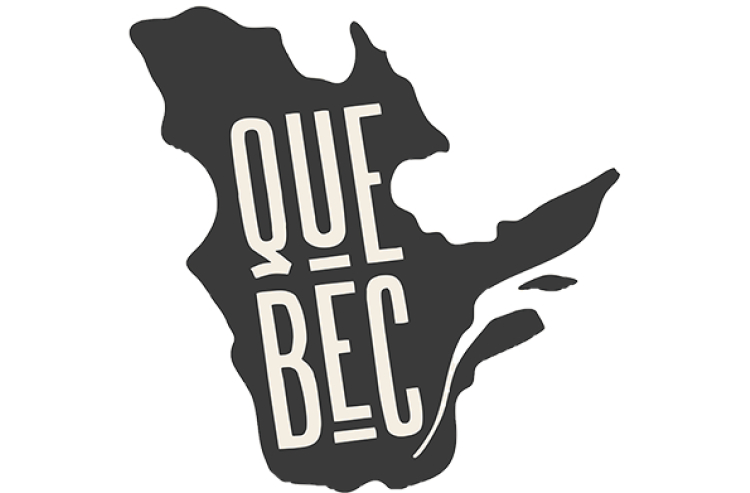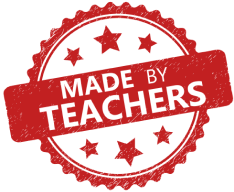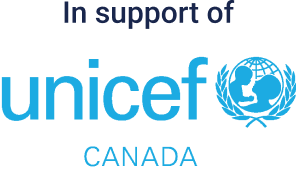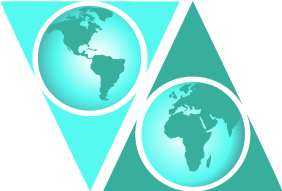Quebec Cycle 3 (Grade 6)

CLICK HERE FOR CURRICULUM CONNECTIONS, LESSONS AND SUPPORT RESOURCES.
Made by a Cycle 3 teacher in Quebec.
Kids Boost Immunity (KBI) provides educational content (lessons and support materials) developed by teachers and where needed, health experts, that is directly linked to curriculum and is available completely for free. Each lesson is paired with an online quiz that students can take on a laptop, tablet, or phone. Every time a student scores 80% or higher on a quiz, we donate life-saving vaccines to UNICEF Canada. To learn more about KBI, click here.
Click on the overarching curriculum themes below to see the curriculum outcomes that match KBI educational content. The full Cycle 3 Quebec Curriculum Connections document is here.
-
Start of Year - Building critical inquiry and reflective thinking skills
-
Curricular outcomes:
English Language Arts - Curriculum Competency
- To Read and Listen to Literary, Popular, and Information-Based Texts
- Constructing Meaning: Apply reading strategies to understand texts.
- Response Process: Use a structured approach when engaging with literary, popular, and informational texts.
- Worldview Development: Build a personal perspective through reading and listening.
- Reader Profile: Develop a self-identity as a reader.
- Self-Evaluation: Assess personal reading progress.
- To Represent her/his Literacy in Different Media
- Constructing Meaning: Use strategies to understand media texts.
- Response Process: Follow a process to respond to media.
- Worldview Development: Form a personal perspective through media.
- Media Production: Use a structured process to communicate effectively with a target audience.
- Self-Evaluation: Assess personal growth as a viewer and producer of media.
- To Use Language to Communicate and Learn
- Communication: Use language to share information, experiences, and viewpoints.
- Learning and Thinking: Use language for educational and cognitive purposes.
- Linguistic Knowledge: Apply understanding of language structures and features.
- Group Interaction: Participate in collaborative activities in various roles.
- Self-Evaluation: Assess personal language development.
Science and Technology - Curricular Competency
- To Propose Explanations for or Solutions to Scientific or Technological Problems
- Problem Identification: Recognize or define problems.
- Exploration Strategies: Use various methods to explore solutions.
- Approach Assessment: Evaluate the effectiveness of the chosen approach.
Social Studies - Curricular Competency
- To be Open to the Diversity of Societies and Their Territories
- Spatial Context: Place societies and their territories in space.
- Compare: Identify key similarities and differences between societies and territories.
- Cause and Effect: Determine causes and effects of these differences.
- Evaluate: Assess the strengths and weaknesses of societies and territories.
- Justification: Defend your view on the diversity of societies and their territories.
Applicable KBI lessons:
1. Critical Thinking & Evaluating Information
- Literacy builder worksheet/answer guide
- Lesson worksheet/answers
- Video worksheet/answers
- Inquiry activities/answer guides
- Numeracy activity/answers
2. Navigating the World of Online (Mis)Information
- Literacy builder worksheet/answer guide
- Inquiry activities/answer guides
- To Read and Listen to Literary, Popular, and Information-Based Texts
- Understanding aspects around global inequality
-
Curricular outcomes:
Social Sciences – Curricular Competency
- To Interpret Change in a Society and its Territory
- Spatial and Temporal Context: Place a society and its territory in space at two different times.
- Recognize Changes: Identify key changes in society and territory organization.
- Cause and Effect: Determine causes and effects of these changes.
- Influence: Identify the impact of people or events on the changes.
- Justification: Support interpretation of changes with reasoning.
- Modern Traces: Recognize how these changes are reflected in today's society and territory.
Culture and Citizenship in Quebec
- Practices that reduce the risk of contracting sexually transmitted infections and life-threatening communicable diseases
Applicable KBI lessons:
1. Global Inequality
- Literacy builder worksheet/answer guide
- Lesson worksheet/answers
- Video worksheet/answers
- To Interpret Change in a Society and its Territory
- Understanding germs, the body’s defence system, and how vaccines can help prevent illness; includes an Indigenous story
-
Curricular outcomes:
Science and Technology - Curricular Competency
- To Propose Explanations for or Solutions to Scientific or Technological Problems
- Problem Identification: Recognize or define problems.
- Exploration Strategies: Use various methods to explore solutions.
- Approach Assessment: Evaluate the effectiveness of the chosen approach.
- To Make the Most of Scientific and Technological Tools, Objects and Procedures
- Familiarization: Understand the roles and functions of scientific and technological tools and methods.
- Application: Connect tools and techniques to their specific uses and contexts.
- Impact Evaluation: Assess the effects of different tools, instruments, or procedures.
- To Communicate in the Languages used in Science and Technology
- Familiarization: Learn everyday language used in science and technology.
- Language Use: Apply both everyday and symbolic language in these fields.
- Effective Communication: Use language effectively to ask questions, express viewpoints, or give explanations.
Culture and Citizenship in Quebec
- Practices that reduce the risk of contracting sexually transmitted infections and life-threatening communicable diseases. Sources of health information
Applicable KBI lessons:
1. Germs, The Body’s Defense System & How Vaccines Help
- Lesson worksheet/answers
- Inquiry activities
- To Propose Explanations for or Solutions to Scientific or Technological Problems
- Levels of Canadian government & Canada’s interactions globally
-
Curricular outcomes:
Social Sciences - Curricular Competency
- To Understand the Organization a Society in its Territory
- Continuity with Present: Connect past events with the present.
- Spatial and Temporal Context: Place society and its territory in space and time.
- Society and Territory: Link societal characteristics with territorial organization.
- Assets and Limitations: Relate territory's strengths and weaknesses to societal structure.
- Influence of People/Events: Identify how people or events shaped social and territorial organization.
- To Interpret Change in a Society and its Territory
- Spatial and Temporal Context: Place a society and its territory in space at two different times.
- Recognize Changes: Identify key changes in society and territory organization.
- Cause and Effect: Determine causes and effects of these changes.
- Influence: Identify the impact of people or events on the changes.
- Justification: Support interpretation of changes with reasoning.
- Modern Traces: Recognize how these changes are reflected in today's society and territory.
- To be Open to the Diversity of Societies and Their Territories
- Spatial Context: Place societies and their territories in space.
- Compare: Identify key similarities and differences between societies and territories.
- Cause and Effect: Determine causes and effects of these differences.
- Evaluate: Assess the strengths and weaknesses of societies and territories.
- Justification: Defend your view on the diversity of societies and their territories.
Culture and Citizenship in Quebec
- Learning about similarities and differences in individuals and groups influences community health
Applicable KBI lessons:
1. Canada's Three Levels of Government
- Literacy builder worksheet/answer guide
- Lesson worksheet/answers
- Video worksheet/answers
- Numeracy activity
- Inquiry activities
2. Canada's Interactions with the Global Community
- Literacy builder worksheet/answer guide
- Lesson worksheet/answers
- Video worksheet/answers
- Numeracy activity
- Inquiry activities
- To Understand the Organization a Society in its Territory
- Social and Emotional Learning
-
Curricular outcomes:
Culture and Citizenship in Quebec
- People who are socially aware and responsible contribute to the well-being of their social and physical environments
Applicable KBI lessons:
1. Social and Emotional Learning
Curriculum-Related Themes Throughout the Year
- Supporting students during school vaccination
-
Curricular outcomes:
Science and Technology - Curricular Competency
- To Propose Explanations for or Solutions to Scientific or Technological Problems
- Problem Identification: Recognize or define problems.
- Exploration Strategies: Use various methods to explore solutions.
- Approach Assessment: Evaluate the effectiveness of the chosen approach.
Social Sciences - Curricular Competency
- To Interpret Change in a Society and its Territory
- Spatial and Temporal Context: Place a society and its territory in space at two different times.
- Recognize Changes: Identify key changes in society and territory organization.
- Cause and Effect: Determine causes and effects of these changes.
- Influence: Identify the impact of people or events on the changes.
- Justification: Support interpretation of changes with reasoning.
- Modern Traces: Recognize how these changes are reflected in today's society and territory.
Culture and Citizenship in Quebec
- Practices that reduce the risk of contracting sexually transmitted infections and life-threatening communicable diseases.
Applicable KBI lessons:
1. How to Handle Your Vaccines Like a Champ
- To Propose Explanations for or Solutions to Scientific or Technological Problems
- Reflecting on hardships and courage during WWII (November)
-
Curricular outcomes:
English Language Arts – Curricular Competency
- To Read and Listen to Literary, Popular, and Information-Based Texts
- Constructing Meaning: Apply reading strategies to understand texts.
- Response Process: Use a structured approach when engaging with literary, popular, and informational texts.
- Worldview Development: Build a personal perspective through reading and listening.
- Reader Profile: Develop a self-identity as a reader.
- Self-Evaluation: Assess personal reading progress.
Social Sciences – Curricular Competency
- To Understand the Organization a Society in its Territory
- Continuity with Present: Connect past events with the present.
- Spatial and Temporal Context: Place society and its territory in space and time.
- Society and Territory: Link societal characteristics with territorial organization.
- Assets and Limitations: Relate territory's strengths and weaknesses to societal structure.
- Influence of People/Events: Identify how people or events shaped social and territorial organization.
- To Interpret Change in a Society and its Territory
- Spatial and Temporal Context: Place a society and its territory in space at two different times.
- Recognize Changes: Identify key changes in society and territory organization.
- Cause and Effect: Determine causes and effects of these changes.
- Influence: Identify the impact of people or events on the changes.
- Justification: Support interpretation of changes with reasoning.
- Modern Traces: Recognize how these changes are reflected in today's society and territory.
- To be Open to the Diversity of Societies and Their Territories
- Spatial Context: Place societies and their territories in space.
- Compare: Identify key similarities and differences between societies and territories.
- Cause and Effect: Determine causes and effects of these differences.
- Evaluate: Assess the strengths and weaknesses of societies and territories.
- Justification: Defend your view on the diversity of societies and their territories.
Culture and Citizenship in Quebec
- We experience many changes in our lives that influence how we see ourselves and others.
Applicable KBI lessons:
1. Remembrance Day / Veterans Day / Armistice Day
- To Read and Listen to Literary, Popular, and Information-Based Texts
- Being kind and building leadership skills to help make a difference to others (December)
-
Curricular outcomes:
Culture and Citizenship in Quebec
- People who are socially aware and responsible contribute to the well-being of their social and physical environments. We experience many changes in our lives that influence how we see ourselves and others.
Applicable KBI lessons:
1. Winter Break - A Time To Reflect on Making a Difference
- Literacy builder worksheet/answer guide
- Inquiry/creative activities
- Highlighting some key inspirational leaders during Black History Month as well as some experiences of refugees from different parts of the world (February)
-
Curricular outcomes:
English Language Arts – Curricular Competency
- To Read and Listen to Literary, Popular, and Information-Based Texts
- Constructing Meaning: Apply reading strategies to understand texts.
- Response Process: Use a structured approach when engaging with literary, popular, and informational texts.
- Worldview Development: Build a personal perspective through reading and listening.
- Reader Profile: Develop a self-identity as a reader.
- Self-Evaluation: Assess personal reading progress.
Social Sciences - Curricular Competency
- To Understand the Organization a Society in its Territory
- Continuity with Present: Connect past events with the present.
- Spatial and Temporal Context: Place society and its territory in space and time.
- Society and Territory: Link societal characteristics with territorial organization.
- Assets and Limitations: Relate territory's strengths and weaknesses to societal structure.
- Influence of People/Events: Identify how people or events shaped social and territorial organization.
- To Interpret Change in a Society and its Territory
- Spatial and Temporal Context: Place a society and its territory in space at two different times.
- Recognize Changes: Identify key changes in society and territory organization.
- Cause and Effect: Determine causes and effects of these changes.
- Influence: Identify the impact of people or events on the changes.
- Justification: Support interpretation of changes with reasoning.
- Modern Traces: Recognize how these changes are reflected in today's society and territory.
- To be Open to the Diversity of Societies and Their Territories
- Spatial Context: Place societies and their territories in space.
- Compare: Identify key similarities and differences between societies and territories.
- Cause and Effect: Determine causes and effects of these differences.
- Evaluate: Assess the strengths and weaknesses of societies and territories.
- Justification: Defend your view on the diversity of societies and their territories.
Culture and Citizenship in Quebec
- We experience many changes in our lives that influence how we see ourselves and others. Learning about similarities and differences in individuals and groups influences community health.
Applicable KBI lessons:
1. Black History Month
2. Refugee Experiences
- Lesson worksheet/answers
- Inquiry activities
- To Read and Listen to Literary, Popular, and Information-Based Texts
- Celebrating Inspiring Women in STEM (March)
-
Curricular outcomes:
English Language Arts – Curricular Competency
- To Read and Listen to Literary, Popular, and Information-Based Texts
- Constructing Meaning: Apply reading strategies to understand texts.
- Response Process: Use a structured approach when engaging with literary, popular, and informational texts.
- Worldview Development: Build a personal perspective through reading and listening.
- Reader Profile: Develop a self-identity as a reader.
- Self-Evaluation: Assess personal reading progress.
Science and Technology – General Concept
- Material World
- "Material World" focuses on properties of materials, changes in states of matter, mixtures and solutions, and simple machines, helping students understand the physical properties and interactions of materials.
- Living Things
- "Living Things" covers the study of ecosystems, classification of organisms, life cycles, and the human body, helping students understand the diversity and interdependence of life.
Culture and Citizenship in Quebec
- Students value diversity, defend human rights, advocate for issues, and interact ethically with others. They are inclusive in their language and behaviour and recognize that everyone has something to contribute. Their approach to inclusive relationships exemplifies commitment to developing positive communities.
Applicable KBI lessons:
1. International Women's Day - Celebrating Inspiring Women in STEM
- Literacy builder worksheets/answer guides
- Numeracy activity
- Inquiry activities
- To Read and Listen to Literary, Popular, and Information-Based Texts
- Caring for the environment (Earth Month in April)
-
Curricular outcomes:
Science and Technology – General Concept
- The Earth and Space
- "Earth and Space" covers the Earth's structure, the water cycle, weather and climate, the solar system, Earth's rotation and revolution, and natural resources, helping students understand the planet and its place in the solar system.
Culture and Citizenship in Quebec
- Students develop awareness of and take responsibility for their social, physical, and natural environments by working independently and collaboratively for the benefit of others, communities, and the environment. They are aware of the impact of their decisions, actions, and footprint. They advocate for and act to bring about positive change.
Applicable KBI lessons:
1. Environment & Climate Change
- Literacy builder worksheets/answer guides
- Lesson worksheet/answers
- Video worksheet/answers
- Inquiry activities
- The Earth and Space
- Understanding communicable diseases and how they are spread, and learning about immunization. Suggested during flu season, immunization awareness week, and school vaccinations (if applicable)
-
Curricular outcomes:
Science and Technology - Curricular Competency
- To Propose Explanations for or Solutions to Scientific or Technological Problems
- Problem Identification: Recognize or define problems.
- Exploration Strategies: Use various methods to explore solutions.
- Approach Assessment: Evaluate the effectiveness of the chosen approach.
- To Make the Most of Scientific and Technological Tools, Objects and Procedures
- Familiarization: Understand the roles and functions of scientific and technological tools and methods.
- Application: Connect tools and techniques to their specific uses and contexts.
- Impact Evaluation: Assess the effects of different tools, instruments, or procedures.
- To Communicate in the Languages used in Science and Technology
- Familiarization: Learn everyday language used in science and technology.
- Language Use: Apply both everyday and symbolic language in these fields.
- Effective Communication: Use language effectively to ask questions, express viewpoints, or give explanations.
Culture and Citizenship in Quebec
- Practices that reduce the risk of contracting sexually transmitted infections and life-threatening communicable diseases.
Applicable KBI lessons:
1. Immunization Awareness Week
2. The Spread of Infectious Diseases
3. Scientific Curiosity and Vaccine Discoveries
- Literacy builder worksheets/answer guides
- Inquiry activities
- To Propose Explanations for or Solutions to Scientific or Technological Problems




